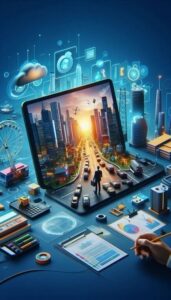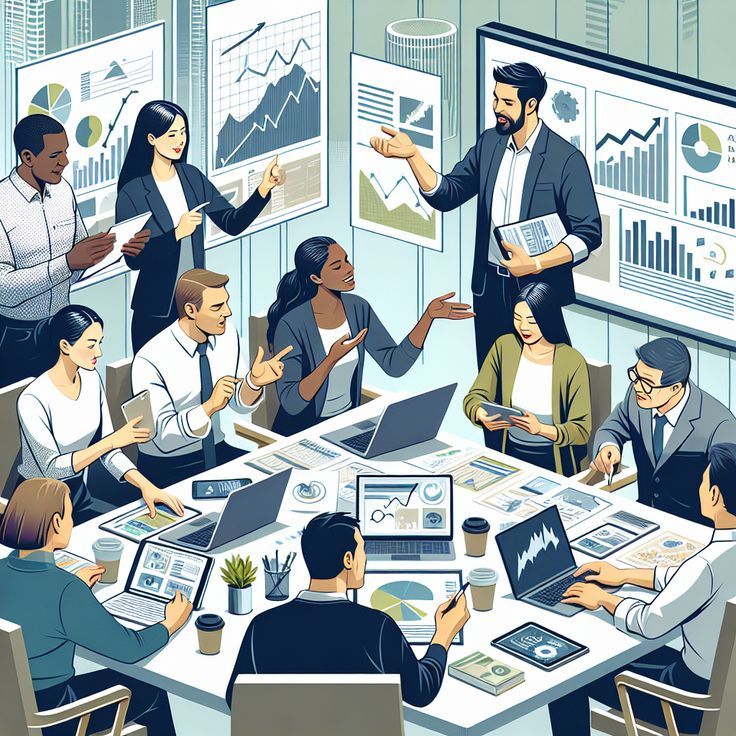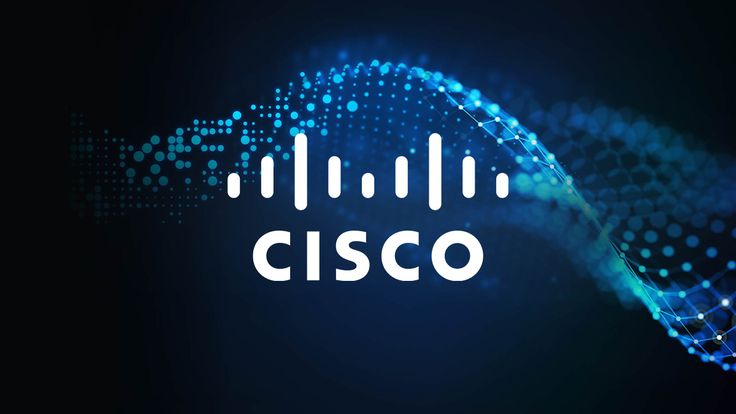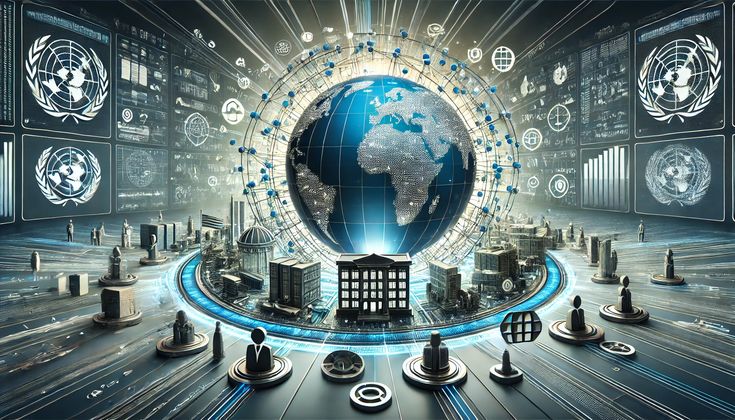The Cultural Revolution of the Digital Lifestyle: An Introduction
Impact on consumers, entrepreneurs, and creative innovation

The digital lifestyle has brought about a revolution in our cultures that has not only changed our daily habits but also our thinking, our relationships, our priorities and our values. This cultural change is not limited to the use of technology, but it is a profound social and psychological change that is reshaping our personalities. Digital culture has completely changed the way we work, the way we learn, our entertainment habits and our social life. This change is not limited to the younger generation, but every generation is being affected by it, people of all ages are adopting and reshaping digital culture in their own way. The impact of this cultural shift on consumer attitudes, entrepreneurial spirit and creative innovation is so profound that we can say that we have entered the era of a new type of human civilisation.
Changing consumer attitudes: The first impact of digital culture
The digital lifestyle has created fundamental changes in consumer attitudes. Consumers are now more informed, more demanding and more empowered. They research products and services more than ever before, read other consumers’ experiences and base their purchasing decisions on collective wisdom. Digital culture has given rise to a culture of instant gratification where consumers want everything immediately – instant delivery, instant response, instant solution. At the same time, digital culture has also created an expectation of transparency, consumers now want companies to be open with them, tell them the truth and respect their rights. This shift is not only affecting purchasing decisions, but it is also reshaping relationships, loyalty, and trust with brands.
Revolutionising the entrepreneurial mindset: The second impact of digital culture
The digital lifestyle has revolutionised the entrepreneurial mindset. Starting a business is now easier than ever, as digital platforms have broken down all traditional barriers to entry. New entrepreneurs can now directly access global markets, they can create virtual teams, and they can use cloud-based services. Digital culture has popularised the philosophy of “fail fast, learn fast,” where new ideas are tried out immediately, failure is seen as an opportunity to learn, and continuous change is accepted as the norm. At the same time, digital culture has also fostered social entrepreneurship, where the goal of business is not just to make a profit but also to solve social problems.
A New Wave of Creative Innovation: The Third Impact of Digital Culture
The digital lifestyle has given birth to a new wave of creative innovation. Creators now have endless means to present their work to the world. Painting, music, writing, video – all types of creativity have been given new life by digital platforms. Digital culture has fostered a “remix culture”, where old creations are presented in new ways, combining elements from different cultures to create new things. At the same time, digital culture has also popularised collaborative creation, where creators from around the world work together, improving on each other’s ideas and collectively creating masterpieces.
The Generation Gap: The Fourth Impact of Digital Culture
The digital lifestyle is affecting different generations in different ways. Generation Z and Millennial were born into digital culture or adopted it in their youth, while Generation X and Baby Boomers have seen this shift as they have matured. Each generation is embracing digital culture in its own way, adapting it to its needs, and reshaping it. For the younger generation, there is no clear boundary between the digital world and the real world; they live in both worlds simultaneously, while for the older generation, the boundary is more pronounced. This generational gap is having a profound impact on consumer attitudes, entrepreneurial spirit, and creative innovation.
Changing Social Media: The Fifth Impact of Digital Culture
The digital lifestyle has completely transformed the way we socialise. A large part of our social lives are now online. We make friends, build relationships, participate in social activities, and express our thoughts – all through digital platforms. This change has not only affected our social lives, but it is also affecting our mental health, our self-esteem, and our personality. Digital culture has given rise to the concept of “digital identity,” where our online persona can be different from our real-life persona. This change is having a profound impact on consumer attitudes, business climate, and creative innovation.
New Concept of Education and Knowledge: The Sixth Impact of Digital Culture
The digital lifestyle has completely changed the concepts of education and knowledge. Now there is no need to go to a school or college to gain knowledge, we can learn from the best teachers in the world sitting at home. Digital culture has popularised the concept of “lifelong learning”, where we continue to learn throughout our lives, learn new skills, and constantly improve ourselves. At the same time, digital culture has also promoted “micro learning”, where we learn in small intervals through small lessons. This change is not only affecting our mental development, but it is also affecting our entrepreneurial skills and creative thinking.
New ways of working: The Seventh Impact of Digital Culture
The digital lifestyle has completely changed the ways of working. Now we can work from home, create virtual teams, and collaborate globally. Digital culture has given rise to the “gig economy,” where people work on small projects rather than permanent jobs, selling their skills to various clients. At the same time, digital culture has also given rise to the concept of “digital notoriety,” where people gain social status based on their digital skills. This shift is not only affecting our sources of income, but it is also affecting our entrepreneurial thinking and creativity.
New sources of entertainment: The eighth impact of digital culture
The digital lifestyle has completely transformed the sources of entertainment. A large part of our entertainment is now online. We play video games, watch movies on streaming services, spend time on social media, and enjoy virtual reality experiences. Digital culture has popularised the concept of “on-demand” entertainment, where we can watch whatever we want, whenever we want. At the same time, digital culture has also promoted “interactive” entertainment, where we are not just spectators but also participate, influence, and create. This change is not only affecting our entertainment habits, but also our creativity, our business ideas, and our shopping habits.
The path to the future: The ninth impact of digital culture
The digital lifestyle is leading us into a future where the boundaries between the digital and real worlds will become increasingly blurred. Artificial intelligence, virtual reality, augmented reality, and other new technologies will further deepen and broaden our digital culture. This change will further affect our consumer behaviors, our entrepreneurial spirit, and our creative innovation. We have to be prepared for this future, we have to learn new skills, adopt new perspectives, and embrace new values. This journey of digital culture will continue, and we have to go with it.
Conclusion: The Scope of Digital Culture
In conclusion, it can be said that the impact of cultural changes in the digital lifestyle on our consumer behaviors, our entrepreneurial spirit, and our creative innovation is so deep and widespread that we cannot ignore it. This change is not only affecting our present, but it is also shaping our future. We have to understand this change, adapt to it, and learn from it. Only in this way can we succeed, be happy, and thrive in this new digital world.
My brother, I hope you liked this content. If you want any changes or additions, please let me know.


